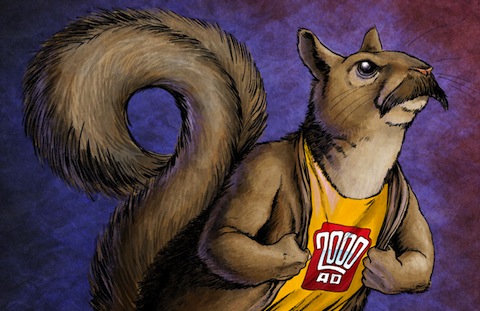
It is a good time to be a squirrel in the United States. For starters, the bushy-tailed rodents are no longer coveted by hunters, to the great distress of many aging sportsmen. The latest numbers out of Pennsylvania don’t lie:
The wider availability of squirrel species has not been enough to buoy squirrel hunting participation. According to the Game Commission’s annual game-take survey, the number of Pennsylvania squirrel hunters dropped from 615,000 in 1983 to 150,000 in 2009. Hunters’ take of squirrels plummeted from 2.2 million to 635,000 over the same span.
“It’s not because of a shortage of squirrels,” Edwards said. “And from a public land standpoint, there is lots of room to hunt them. There is opportunity, but we’re not promoting it. It’s a great way to start kids.”
For those squirrels that do have violent run-ins with hunters, however, there is hope for rehabilitation should they survive the experience. The wounded critter must hope that they end up in the care of Maria Strouse, a North Carolina woman who operates a rehab organization for squirrels. Though she spends thousands of dollars each year nursing her tiny patients back to health, she strongly recommends against keeping squirrels as pets. It seems the rodents don’t always make their appreciation known:
“I have no squirrel pets,” Strouse says. “And by the end of squirrel season I can’t wait until they are gone. They scratch, and when they go into the release cage they bite, don’t want anything to do with me. When they reach sexual maturity, they can get very aggressive. My hands are always sore from hand-feeding these guys. They tear you up. They jump on my head, they climb down my face, and I have to wear goggles all the time.”
The self-proclaimed “Agent Squirrel” certainly gets points for stoicism. After a few days of getting our flesh torn up by ungrateful squirrels, we’d definitely be looking to turn our charges into stroganoff.
(Image via 2000AD Covers Uncovered)


Like gas stations in rural Texas after 10 pm, comments are closed.